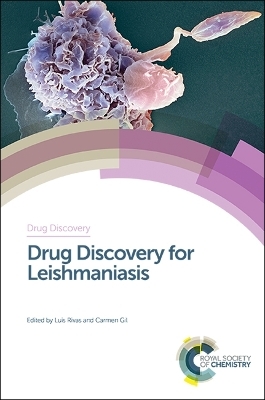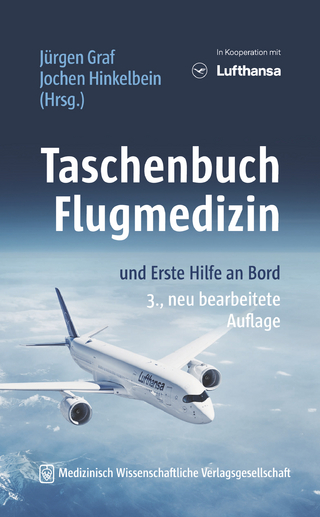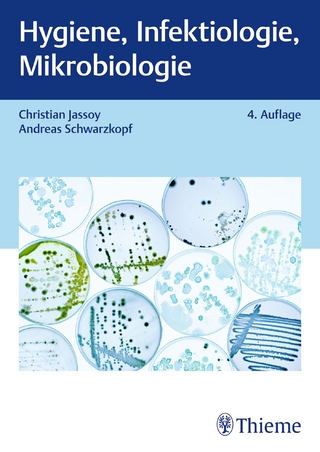
Drug Discovery for Leishmaniasis
Royal Society of Chemistry (Verlag)
978-1-78262-889-7 (ISBN)
Drug Discovery for Leishmaniasis aims to provide a perspective of the current treatments and their challenges, blended with the emerging strategies and methodologies that will drive new target appraisals and drug developments, as well as addressing the molecular basis of resistance in Leishmania.
Recent studies have shown that leishmaniasis affects some of the poorest people in the world, with 95% of fatal cases occurring in only 6 countries. With the WHO goal of eliminating this public health problem in the South-east Asia Region by 2020, this book will be important for anyone who is interested in neglected tropical diseases.
Dr Luis Rivas currently belongs to the scientific staff of the Center for Biological Research (Madrid, Spain) inside the Spanish National Council for Scientific Research Organization (Consejo Superior de Investigaciones Científicas, CSIC). He earned his PhD in Biochemistry (University Complutense of Madrid, 1984). After completing his PhD, he moved to the Weizmann Institute of Science, (Rehovot, Israel) and to Yale University (CT, USA) to complete his formation as a postdoctoral fellow. He focused on the design of antimicrobial peptides and on cell penetrating peptides as new drugs and vehicles for Leishmania chemotherapy. Another line is the elucidation of the mode of action of drugs targeting the bioenergetic mechanism of the parasite. He published 80 publications in referred international journals, mostly addressing Leishmania chemotherapy and molecular basis of peptide-pathogen interaction. Dr Carmen Gil is staff scientist at Center for Biological Research of Spanish National Council for Research (CSIC) with a background in Medicinal Chemistry and Pharmacy. She received her Ph.D. from Complutense University of Madrid in 2001. After a postdoctoral appointment at Bonn University (Germany) she joined the CSIC. Her research is oriented to the discovery and development of new small-molecules as innovative target-based drugs and her research areas have been focused on phosphodiesterase and kinase inhibitors as innovative drug candidates for neurodegenerative diseases. She is involved in different projects that apply her background and experience in the development of specific parasite phosphodiesterase and kinase inhibitors in the fight for neglected parasitic diseases. She is author of more than sixty scientific publications, has four active patents in the field and has contributed to several books.
Leishmaniasis, Impact and Therapeutic Needs;
Anti-leishmanial Drug Discovery: Past, Present and Future Perspectives;
From Bench to Bedside: Development and Optimization of Clinical Therapies for Visceral Leishmaniasis;
Drug Assay Methodology in Leishmaniasis: From the Microplate to Image Analysis;
The Pursuit of Novel Anti-leishmanial Agents by High-throughput Screening (HTS) of Chemical Libraries;
Omics and Their Impact on the Development of Chemotherapy Against Leishmania;
In silico Tools for Target Identification and Drug Molecular Docking in Leishmania;
Medicinal Chemistry Strategies to Discover New Leishmanicidal Drugs;
Natural Products as a Source of New Drugs Against Leishmania;
Organometallic Compounds in Chemotherapy Against Leishmania;
New Avenues for Drug Delivery in Leishmania: Using Treatment of Visceral Leishmaniasis with Amphotericin B as an Exemplar;
Addressing the Molecular Biology of Leishmania for Drug Development;
The Physical Matrix of the Plasma Membrane as a Target: The Charm of Drugs with Low Specificity;
Nutrient Transport and Sensing as Pharmacological Targets for Leishmaniasis;
Carbon Metabolism as a Drug Target in Leishmania;
The Redox Metabolism and Oxidative Stress in Leishmania as a Crossroads for the Lethal Effect of Drugs;
DNA Topoisomerases as Promising Targets for Leishmania Chemotherapy;
Molecular Basis of Drug Resistance in Leishmania;
The Macrophage–Parasite Interface as a Chemotherapeutic Target in Leishmaniasis
| Erscheinungsdatum | 01.02.2018 |
|---|---|
| Reihe/Serie | Drug Discovery ; Volume 60 |
| Verlagsort | Cambridge |
| Sprache | englisch |
| Maße | 156 x 234 mm |
| Gewicht | 792 g |
| Themenwelt | Medizin / Pharmazie ► Medizinische Fachgebiete ► Mikrobiologie / Infektologie / Reisemedizin |
| Medizin / Pharmazie ► Medizinische Fachgebiete ► Pharmakologie / Pharmakotherapie | |
| Naturwissenschaften ► Biologie ► Biochemie | |
| Naturwissenschaften ► Biologie ► Mikrobiologie / Immunologie | |
| Technik | |
| ISBN-10 | 1-78262-889-4 / 1782628894 |
| ISBN-13 | 978-1-78262-889-7 / 9781782628897 |
| Zustand | Neuware |
| Haben Sie eine Frage zum Produkt? |
aus dem Bereich


